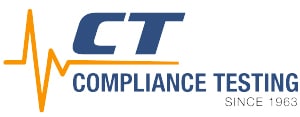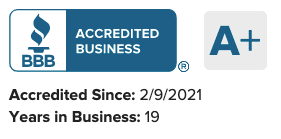If you’re bringing an electronic product to market in North America, you’re likely familiar with the FCC Part 15 rules, as well as Canada’s Innovation, Science and Economic Development (ISED) regulations.
The FCC and ISED regulate use of the radio frequency spectrum to ensure that devices sold in their respective markets don’t cause electromagnetic interference (EMI). Both agencies require similar testing data and compliance processes for electronic devices.
As an ANSI-accredited electrical testing lab that specializes in FCC and ISED compliance, one of the most common questions we get is whether it’s possible to get FCC and ISED equipment authorization at the same time.
The answer to this question is generally yes, as the test procedures and requirements for FCC Part 15 and ISED compliance are similar. Completing both authorization processes at once can make your testing more cost-effective and help you access the US and Canadian markets.
Below, you can find more information about FCC Part 15, ISED regulations, and the process of getting FCC and ISED certification at the same time.
To talk to our engineers and compliance specialists about FCC and/or ISED compliance, or to request a free, no-obligation quote for testing your device, feel free to contact us online or call us at 866-540-5287.
What is FCC Part 15?
FCC Part 15 is a section of the Code of Federal Regulations, Title 47 that provides clear and objective standards for electronic devices that emit radio frequency (RF) energy. These rules are intended to prevent electromagnetic interference that may affect communications.
The idea behind FCC Part 15 is that untested, uncertified electronic devices can disrupt vital communications services that rely on radio frequencies, such as TV, phone communications and navigation.
Under FCC Part 15, devices that either intentionally emit radio frequency signals (intentional radiators) or unintentionally produce radio frequency energy (unintentional radiators) need to complete FCC testing and achieve equipment authorization from the FCC before entering the US market.
Devices that comply with Part 15 can display the FCC mark on their packaging and legally go on sale in the United States.
The path to equipment authorization under Part 15 can vary based on device type. Intentional radiators typically need to receive FCC certification — a thorough, comprehensive process — to receive authorization from the FCC. This process provides an FCC ID for the device.
Devices that are classed as unintentional radiators, or some devices that use pre-certified parts in order to produce radio frequency emissions, can often receive authorization using a process called Supplier’s Declaration of Conformity (SDoC), which is faster and less costly.
Compliance with FCC Part 15 is mandatory for all electronic devices that fall under the scope of this regulation. Exceptions to Part 15 are rare, meaning that if your device is capable of emitting radio frequency emissions, even if non-deliberate, it likely needs to be tested for compliance.
The FCC regularly checks compliance for electronic devices and fines manufacturers of devices that do not comply with Part 15 standards.
What are ISED Regulations?
ISED regulations are rules set by Innovation, Science, and Economic Development Canada for electronic devices, wireless devices and certain product categories, such as lighting equipment, aerospace equipment and audio, visual and IT devices.
Canada’s ISED regulations for electronic devices are very similar to the FCC Part 15 rules that apply in the United States. Your device will need to demonstrate compliance with specific radio standards specifications (RSSs) in order to meet the standards of each ISED regulation.
Like the FCC in the United States, ISED can and does take legal action against manufacturers and distributors of non-compliant devices sold in Canada. As such, it’s important to ensure your device is compliant before entering the Canadian market.
How to Receive FCC & ISED Authorization for Your Device
Because FCC Part 15 and ISED regulations involve similar testing, it’s often possible to receive compliance for both in a single round of testing for your device.
A typical testing and certification process for FCC and ISED would look like this:
-
- Identify all appropriate standards. Before beginning the compliance process, you’ll want to identify all standards and regulations that apply to your device. If you intend to sell your device in Europe, additional CE testing and regulations will apply.
- Conduct pre-compliance testing. Although not essential, conducting pre-compliance testing can help you identify potential issues early in the design process and implement solutions before your device is tested for FCC and ISED compliance.
- Complete lab testing. While working with an accredited lab testing partner, specify that you’d like to complete testing for both FCC and ISED compliance. ISED compliance will require a small amount of additional testing and will not have a large impact on costs.
- Prepare compliance documentation. Our team will assist you in preparing documents for your FCC filing (in case of certification), Declaration of Conformity (in case of SDoC), and ISED application.
- File with the FCC and ISED. If your device needs FCC certification, it will be submitted via a TCB (Telecommunications Certification Body). Our team can act on your behalf to submit your application with ISED Canada.
- Receive authorization and affix compliance marks. After receiving authorization from the FCC and/or ISED, you’ll need to add the respective compliance marks to your device and its packaging before going to market.
Get Expert Help With FCC & ISED Certification
As an ANSI-accredited electronics testing lab, we’ve helped hundreds of device manufacturers and importers receive FCC, ISED, CE and other regulatory certifications for their products. Our team can assist you with every step of the process, from pre-compliance to certification.
To request a free, no-obligation quote for your product, or to talk to our team about the testing and regulatory compliance process, contact us online or call us at 866-540-5287. We can answer your questions and help you obtain all relevant certifications for your device.



